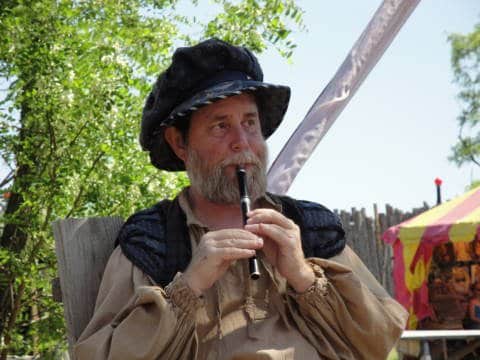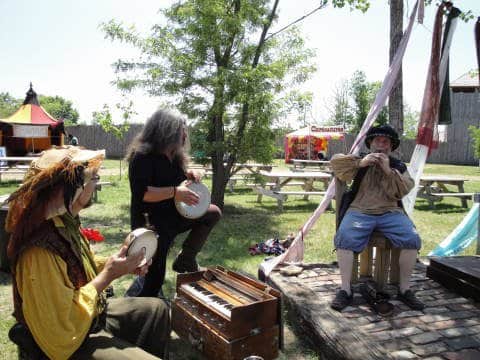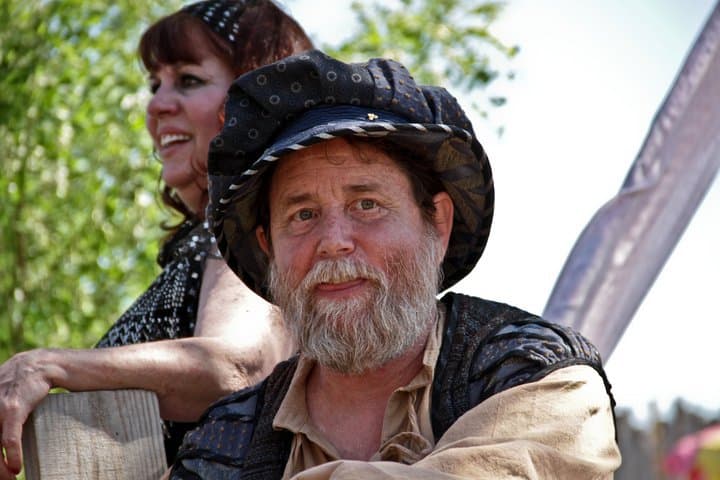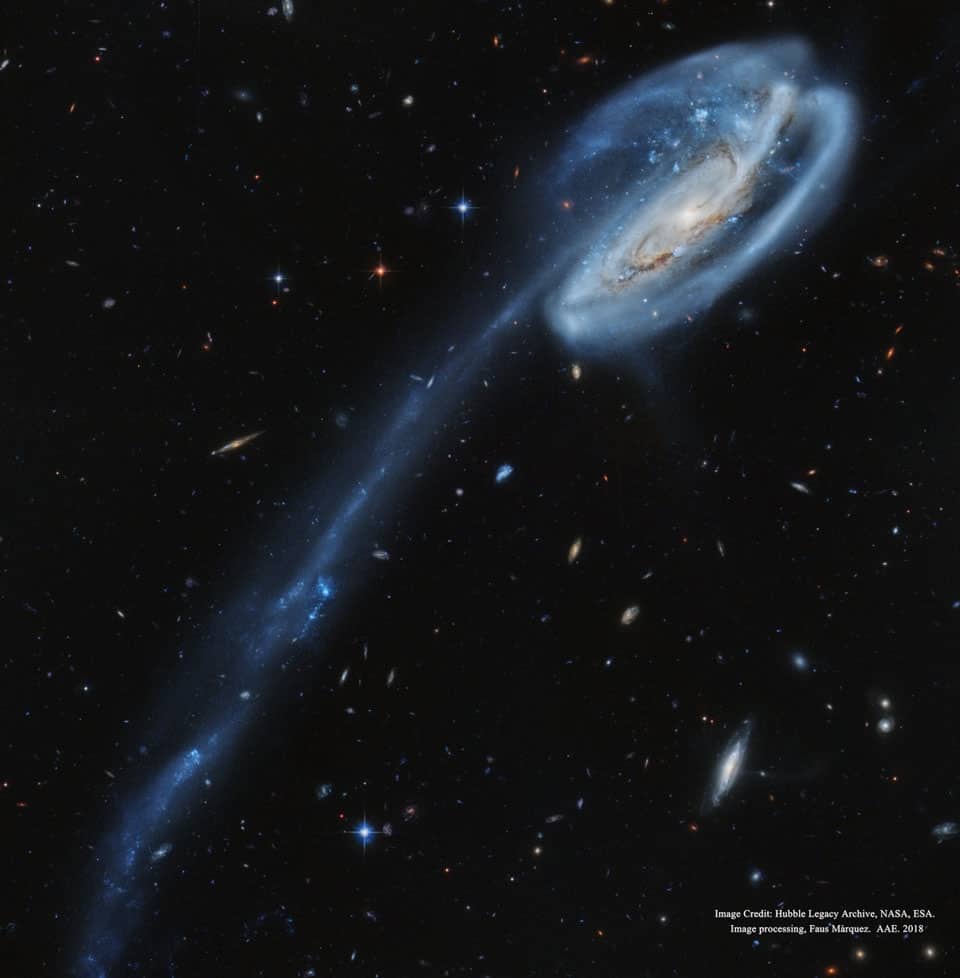Blog
November 17 1952-2018
Bob Bielefeld Memorial
I recently found out a trusted musician & friend passed away.
Bob Bielefeld worked with a variety of flutes and wind instruments, most often at Renaissance Festivals. I did two seasons with him at the Chippewa Falls Renaissance Faire in 2010/11.
He was a gentle, kind, sensitive, cheerful, diligent, steadfast, a serious musician, a pleasure to work with and a gentleman.
Often when working at Renaissance Festivals, the artists and or particularly musicians are not so cordial or hospitable to one another, often feeling competitive. Ego Maniacs displaying their brawn rather than their talent (they wished they had); if they have any talent at all lol. Sometimes not and sometimes incredible.
Bob was a pivotal exception as a musician and a human being.
Have a great new adventure Bob.
And thank you for your wonderful disposition & work.
Fare thee well Bob Bielefeld!
We love you!
Performing at the Chippewa Valley Renaissance Faire 2011.
with Polly Weiss, Billy Miller and mick laBriola.
Roughly 50 million light-years away lies a somewhat overlooked little galaxy named NGC 1559. Pictured here by Hubble’s Wide Field Camera 3, this barred spiral lies in the little-observed southern constellation of Reticulum(The Reticule).
NGC 1559 has massive spiral arms chock-full of star formation, and is receding from us at a speed of about 1300 km/s. The galaxy contains the mass of around ten billion Suns — while this may sound like a lot, that is almost 100 times less massive than the Milky Way. Although NGC 1559 appears to sit near one of our nearest neighbours in the sky — the Large Magellanic Cloud (LMC), this is just a trick of perspective. In reality, NGC 1559 is physically nowhere near the LMC in space — in fact, it truly is a loner, lacking the company of any nearby galaxies or membership of any galaxy cluster.
Despite its lack of cosmic companions, when this lonely galaxy has a telescope pointed in its direction, it puts on quite a show! NGC 1559 has hosted a variety of spectacular exploding stars called supernovae, four of which we have observed — in 1984, 1986, 2005, and 2009 (SN 1984J, 1986L, 2005df [a Type Ia], and 2009ib [a Type II-P, with an unusually long plateau]).
more...Cecil Payne (December 14, 1922 – November 27, 2007) was an American jazz baritone saxophonist born in Brooklyn, New York. Payne also played the alto saxophone and flute. He played with other prominent jazz musicians, in particular Dizzy Gillespie and Randy Weston, in addition to his solo work as bandleader.
Payne received his first saxophone at the age of 13, asking his father for one after hearing “Honeysuckle Rose” performed by Count Basie with Lester Young soloing. Payne took lessons from a local alto sax player, Pete Brown. He studied at Boys High School, Bedford-Stuyvesant.
Payne began his professional recording career with J. J. Johnson on the Savoy label in 1946. During that year he also began playing with Roy Eldridge, through whom he met Dizzy Gillespie. His earlier recordings would largely fall under the swing category, until Gillespie hired him. Payne stayed on board until 1949, heard performing solos on “Ow!” and “Stay On It”. In the early 1950s he found himself working with Tadd Dameron, and worked with Illinois Jacquet from 1952 to 1954. He then started freelance work in New York City and frequently performed during this period with Randy Weston, whom Payne worked with until 1960. Payne was still recording regularly for Delmark Records in the 1990s, when he was in his seventies, and indeed on into the new millennium.
more...Clark Virgil Terry Jr. (December 14, 1920 – February 21, 2015) was an American swing and bebop trumpeter, a pioneer of the flugelhorn in jazz, composer, educator, and NEA Jazz Masters inductee.
He played with Charlie Barnet (1947), Count Basie (1948–51),Duke Ellington (1951–59), Quincy Jones (1960), and Oscar Peterson (1964-96). He was also with The Tonight Show Band from 1962 to 1972. Terry’s career in jazz spanned more than 70 years, during which he became one of the most recorded jazz musicians ever, appearing on over 900 recordings. Terry also mentored many musicians including Quincy Jones, Miles Davis, Herbie Hancock, Wynton Marsalis, Pat Metheny, Dianne Reeves, and Terri Lyne Carrington among thousands of others.
Terry was born to Clark Virgil Terry Sr. and Mary Terry in St. Louis, Missouri, on December 14, 1920. He attended Vashon High School and began his professional career in the early 1940s, playing in local clubs. He served as a bandsman in the United States Navy during World War II. His first instrument was valve trombone.
https://www.youtube.com/watch?v=NpNAKrFLqfU
more...Flamenco Fridays featuring Bulerias y Tomatito
more...This stunning spiral galaxy is Messier 100 in the constellation Coma Berenices, captured here by the NASA/ESA Hubble Space Telescope — not for the first time. Among Hubble’s most striking images of Messier 100 are a pair taken just over a month apart, before and after Servicing Mission 1, which took place 25 years ago in December 1993.
After Hubble was launched, the astronomers and engineers operating the telescope found that the images it returned were fuzzy, as if it were out of focus. In fact, that was exactly what was happening. Hubble’s primary mirror functions like a satellite dish; its curved surface reflects all the light falling on it to a single focal point. However, the mirror suffered from a defect known as a spherical aberration, meaning that the light striking the edges of the mirror was not travelling to the same point as the light from the centre. The result was blurry, unfocused images.
To correct this fault, a team of seven astronauts undertook the first Servicing Mission in December 1993. They installed a device named COSTAR (Corrective Optics Space Telescope Axial Replacement) on Hubble, which took account of this flaw of the mirror and allowed the scientific instruments to correct the images they received. The difference between the photos taken of Messier 100 before and after shows the remarkable effect this had, and the dramatic increase in image quality.
more...Reginald Volney Johnson (born December 13, 1940) is an American jazz double-bassist.
Johnson was born in Owensboro, Kentucky. After playing trombone with school orchestras and army bands, he switched to double bass, and started working with musicians such as Bill Barron and recording with Archie Shepp in the mid–1960s, before joining Art Blakey‘s band for a month-long residency at the Five Spot Café in December 1965, and then going on to The Lighthouse nightclubin Hermosa Beach, California, where they recorded the live album, Buttercorn Lady, at the beginning of 1966,[1] with a line-up, comprising Blakey, Frank Mitchell, Chuck Mangione, Keith Jarrett, and Johnson.
He has also played and/or recorded with Bill Dixon, Sun Ra, and Burton Greene, Lonnie Liston Smith, Stanley Cowell, Bobby Hutcherson, Harold Land, Blue Mitchell, Walter Bishop Jr.,Sonny Rollins, Sonny Stitt, Sarah Vaughan, Carmen McRae, Art Pepper, Kenny Burrell, Clark Terry, The Crusaders, Johnny Coles, and Frank Wess.
In the mid–1980s he moved to Europe, where he has worked with Johnny Griffin, Horace Parlan, Monty Alexander, Kenny Barron, Tom Harrell, Phil Woods, Cedar Walton, Alvin Queen, Jesse Davis, Freddie Redd and Clark Terry
more...Benjamin M. “Ben” Tucker (December 13, 1930 – June 4, 2013) was an American jazz bassist who appeared on hundreds of recordings. Tucker played on albums by Art Pepper, Billy Taylor, Quincy Jones, Grant Green, Dexter Gordon, Hank Crawford, Junior Mance, and Herbie Mann.
He was born in Tennessee. As bass player in the Dave Bailey Quintet in 1961, he wrote the instrumental version of the song “Comin’ Home Baby!“, first issued on the album Two Feet in the Gutter. Bob Dorough later wrote a lyric to the song, and the vocal version became a Top 40 hit for jazz singer Mel Tormé in 1962.
Tucker released the album Baby, You Should Know It (Ava, 1963) with Victor Feldman, Larry Bunker, Bobby Thomas, Ray Crawford, Tommy Tedesco, and Carlos “Patato” Valdes.
By 1972, Tucker owned two radio stations, WSOK-AM, which had over 400,000 listeners, and WLVH-FM. Both of these were located in his hometown of Savannah, Georgia.
He died in a traffic collision in Hutchinson Island, Georgia, on June 4, 2013
more...William Alexander “Sonny” Greer (December 13, c. 1895 – March 23, 1982) was an American jazz drummer and vocalist, best known for his work with Duke Ellington.
Greer was born in Long Branch, New Jersey, and played with Elmer Snowden‘s band and the Howard Theatre‘s orchestra in Washington, D.C., before joining Duke Ellington, whom he met in 1919. He was Ellington’s first drummer, playing with his quintet, the Washingtonians, and moving with Ellington into the Cotton Club. As a result of his job as a designer with the Leedy Drum Company of Indiana, Greer was able to build up a huge drum kit worth over a then-considerable $3,000, including chimes, a gong, timpani, and vibes.
Greer was a heavy drinker, as well as a pool-hall hustler (when he needed to retrieve his drums from the pawnbroker), and in 1950 Ellington responded to his drinking and occasional unreliability by taking a second drummer, Butch Ballard, with them on a tour of Scandinavia. This enraged Greer, and the consequent argument led to their permanent estrangement.
Greer continued to play, mainly as a freelance drummer, working with musicians such as Johnny Hodges, Red Allen, J. C. Higginbotham, Tyree Glenn, and Brooks Kerr, as well as appearing in films, and briefly leading his own band. Greer featured in the iconic 1958 black-and-white photograph by Art Kane known as “A Great Day in Harlem”
https://www.youtube.com/watch?v=ZM1DUXDm7o4
more...https://www.youtube.com/watch?v=6ezAEp9nGlE
more...some of the dust in M43 appears similar to a waterfall on Earth. M43, part of the Orion Molecular Cloud Complex, is the often imaged but rarely mentioned neighbor of the more famous M42. M42, which includes many bright stars from the Trapezium cluster, lies above the featured scene. M43 is itself a star forming region and although laced with filaments of dark dust, is composed mostly of glowing hydrogen. The entire Orion field, located about 1600 light years away, is inundated with many intricate and picturesque filaments of dust. Opaque to visible light, dark dust is created in the outer atmosphere of massive cool stars and expelled by a strong outer wind of protons and electrons.
more...Anthony Tillmon “Tony” Williams (December 12, 1945 – February 23, 1997) was an American jazz drummer.
Williams first gained fame in the band of trumpeter Miles Davis and was a pioneer of jazz fusion. He was inducted into the Modern Drummer Hall of Fame in 1986. Williams was born in Chicago and grew up in Boston. He was of African, Portuguese, and Chinese descent. He studied with drummer Alan Dawsonat an early age, and began playing professionally at the age of 13 with saxophonist Sam Rivers. Saxophonist Jackie McLean hired Williams when he was 16.
At 17 Williams gained attention by joining Miles Davis in what was later dubbed Davis’s Second Great Quintet. Williams was a vital element of the group, called by Davis in his autobiography “the center that the group’s sound revolved around.” His playing helped redefine the role of the jazz rhythm section through the use of polyrhythms and metric modulation, moving between mathematically related tempos and/or time signatures. Meanwhile, he recorded his first two albums as leader for Blue Note label, Life Time (1964) and Spring (1965). He also recorded as a sideman for the label including, in 1964, Out to Lunch! with Eric Dolphy and Point of Departure with Andrew Hill.
In 1969, he formed a trio, the Tony Williams Lifetime, with John McLaughlin on guitar and Larry Young on organ. Lifetime was a pioneering band of the fusion movement, a combination of rock, R&B, and jazz.
more...Alejandro Neciosup Acuña (born December 12, 1944), known professionally as Alex Acuña, is a Peruvian drummer and percussionist.
Born in Pativilca, Peru, Acuña played in local bands from the age of ten, and moved to Lima as a teenager. At the age of eighteen he joined the band of Perez Prado, and in 1965 he moved to San Juan, Puerto Rico. In 1974 Acuña moved to Las Vegas, working with artists such as Elvis Presley and Diana Ross, and the following year he joined the jazz-fusion group Weather Report, appearing on the albums Black Market and Heavy Weather. Acuña left Weather Report in 1978, and became a session musician in California, recording and playing live with (amongst many others) Paul McCartney, Joni Mitchell, Ella Fitzgerald, Elvis Presley, Chick Corea, Whitney Houston, Plácido Domingo, former Weather Report bandmates Wayne Shorter and Joe Zawinul, Herbie Hancock, Carlos Santana, Antonio Carlos Jobim, Beck, Roberta Flack, U2, Al Jarreau and Marcos Witt. He can be found on recordings by musicians as culturally diverse as Lee Ritenour, Johnny Clegg, Roy Orbison, YellowJackets, Lalo Schiffrin, Milton Nascimento, Don Grusin, Dave Grusin, The Brecker Brothers, Arturo Sandoval, Paquito d’Rivera, Gonzalo Rubalcaba, Brad Mehldau, BoDeans, Paco de Lucia, John Patitucci, Sadao Watanabe, Lyle Mays, Diana Ross, Sergio Mendez, Robbie Robertson, Jackson Browne, Bette Midler, Jennifer Nettles, Christina Aguilera, Seal and Chris Botti.
more...Grover Washington Jr. (December 12, 1943 – December 17, 1999) was an American jazz-funk / soul-jazz saxophonist. Along with George Benson, John Klemmer, David Sanborn, Bob James, Chuck Mangione, Dave Grusin, Herb Alpert, and Spyro Gyra, he is considered by many to be one of the founders of the smooth jazz genre. He wrote some of his material and later became an arranger and producer.
Throughout the 1970s and 1980s, Washington made some of the genre’s most memorable hits, including “Mister Magic”, “Reed Seed”, “Black Frost”, “Winelight”, “Inner City Blues” and “The Best is Yet to Come”. In addition, he performed very frequently with other artists, including Bill Withers on “Just the Two of Us” (still in regular rotation on radio today), Patti LaBelle on “The Best Is Yet to Come” and Phyllis Hyman on “A Sacred Kind of Love”. He is also remembered for his take on the Dave Brubeck classic “Take Five“, and for his 1996 version of “Soulful Strut“.
Washington had a preference for black nickel-plated saxophones made by Julius Keilwerth. These included a SX90R alto and SX90R tenor. He also played Selmer Mark VI alto in the early years. His main soprano was a black nickel-plated H. Couf Superba II (also built by Keilwerth for Herbert Couf) and a Keilwerth SX90 in the last years of his life.
Washington was born in Buffalo, New York, on December 12, 1943. His mother was a church chorister, and his father was a collector of old Jazzgramophone records and a saxophonist as well, so music was everywhere in the home. He grew up listening to the great jazzmen and big band leaders like Benny Goodman, Fletcher Henderson, and others like them. At the age of 8, Grover Sr. gave Jr. a saxophone. He practiced and would sneak into clubs to see famous Buffalo blues musicians.
more...Why does this galaxy have such a long tail? In this stunning vista, based on image data from the Hubble Legacy Archive, distant galaxies form a dramatic backdrop for disrupted spiral galaxy Arp 188, the Tadpole Galaxy. The cosmic tadpole is a mere 420 million light-years distant toward the northern constellation of the Dragon (Draco). Its eye-catching tail is about 280 thousand light-years long and features massive, bright blue star clusters. One story goes that a more compact intruder galaxy crossed in front of Arp 188 – from right to left in this view – and was slung around behind the Tadpole by their gravitational attraction. During the close encounter, tidal forces drew out the spiral galaxy’s stars, gas, and dust forming the spectacular tail. The intruder galaxy itself, estimated to lie about 300 thousand light-years behind the, can be seen through foreground spiral arms at the upper right. Following its terrestrial namesake, the Tadpole Galaxy will likely lose its tail as it grows older, the tail’s star clusters forming smaller satellites of the large spiral galaxy.
more...More Posts
- Bix Beiderbecke
- World Music HARDKISS Ukraine
- Daily Roots Playing for Change
- Cosmos Barnard 33
- Jeanette Harris
- Zakir Hussain
- Ornette Coleman
- Samuel Barber
- World Music with Hych Orchestra from Ukraine
- Daily Roots Wailing Souls
- Happy International Women’s Day 2022
- Cosmos IC 410
- Johnny Ventura
- Billy Childs
- Gábor Szabó
- George Coleman
- Mississippi John Hurt
- World Music with Kateryna Pavlenko & Go_A
- Daily Roots with Bob Marley
- Cosmos HH34






